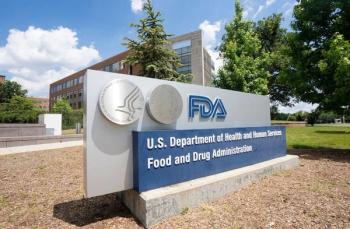
Nonfasting Triglyceride Levels Linked to Increased Cardiovascular Risk
HERLEV, Denmark -- Elevated nonfasting triglycerides are associated with increased risk of fatal and nonfatal cardiac events, according to results of two large, long-term, prospective cohort studies.
HERLEV, Denmark, July 17 -- Elevated nonfasting triglycerides are associated with increased risk of fatal and nonfatal cardiac events, according to results of two large, long-term, prospective cohort studies.
In both studies, published in the July 18 issue of the Journal of the American Medical Association, the risk appeared to be greatest for women.
The first study, conducted by Borge G. Nordestgaard, M.D., D.M.Sc., of Herlev University Hospital, and colleagues, found that women who had nonfasting triglycerides of 442.5 mg/dL or more were 16.8 times more likely to have a myocardial infarction (multifactorially adjusted HR 5.4) than women who had nonfasting triglycerides of less than 88.5 mg/dL (P
The participants were categorized by baseline nonfasting triglyceride levels, 88.5-176.1 mg/dL, 177.0-264.6 mg/dL, 265.5-353.0 mg/dL, 354.0-441.6 mg/dL, and 442.5 mg/dL or more.
Among the findings:
- For each respective category increase above 88.5 mg/dL, the age-adjusted HR for MI among women were 2.2, 4.4, 3.9, 5.1 and 16.8 and for men they were 1.6, 2.3, 3.6, 3.3, and 4.6 (P
"Therefore, it is important to aggressively and comprehensively treat patients with dyslipidemias that include high levels of triglycerides, low levels of HDL-C, and the presence of small LDL-C particles, using both lifestyle change and medications if necessary," Dr. McBride concluded.
Dr. Nordestgaard noted that the Danish finding was limited by its sample, which included only white participants. Moreover "the relatively small sample sizes and wide confidence intervals in groups with the highest triglycerides are of concern," they wrote.
Dr. Ridker acknowledged that the WHI study also had design limitations including the fact that participants were not randomly assigned to fasting versus nonfasting triglyceride testing.
Additionally, the findings about timing of postprandial phlebotomy was not straightforward because the last meal prior to blood draw was not given in a standardized manner.
The study by Ridker et al was funded by the Donald W. Reynolds Foundation, the Leducq Foundation, the National Heart, Lung, and Blood Institute, Abbott Laboratories and the National Cancer Institute. Dr. Ridker reported research support from the American Heart Association, the Doris Duke Charitable Foundation, the Leducq Foundation, the National Cancer Institute, the National Heart, Lung, and Blood Institute, the Donald W. Reynolds Foundation, the James and Polly Annenberg La Vea Charitable Trusts, Abbott, AstraZeneca, Bayer, Bristol-Myers-Squibb, Dade-Behring, Isis Pharmaceutical, Novartis, Pharmacia, Roche, Sonofi-Aventis, and he is listed as a coninventor on patents held by Brigham and Women's Hospital.
Dr. McBride received honoraria from Bristol-Myers Squibb, Kos, Liposcience, Merck, Pfizer, Reliant, and Schering Plough and previously served as a consultant for Merck.
Newsletter
Enhance your clinical practice with the Patient Care newsletter, offering the latest evidence-based guidelines, diagnostic insights, and treatment strategies for primary care physicians.

































































































































